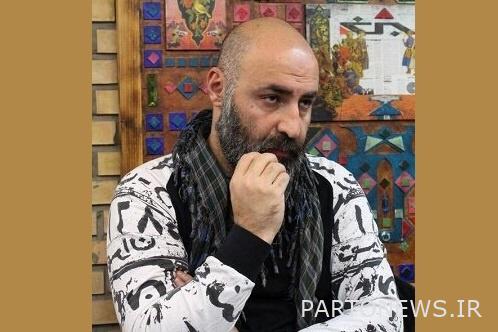The government refuses to help art under the pretext of privatization

Criticizing the business flow that has developed in the last decade due to the growth of private theaters in Iran, Tino Salehi says: “Imagine a young person who has become acquainted with theater in this decade and has no idea of Iranian art before; He has been acquainted with theater for ten years, which has a commercial approach due to the dominance of financial relations, and he believes that good theater has such a pattern.
Theater News Base: «Tino SalehiIs one of the active theatrical artists who in 1400, in addition to acting, staged the play “Bed in Room 23 of the Atlantic Hotel” in the city theater complex; A play for which he was nominated for the playwriting section of the 40th Fajr Theater Festival. Eventually, however, he took home the festival statue for his role in “Segak.” We asked him about private theater, government support for theater, as well as the festival’s role in turnover and improving the performing arts economy.
Salehi emphasized that “no matter how hard we try, we are still far from the theater of the day; “Especially financially.” He pointed out that this is why government support for the theater has generally failed to show itself in recent years; But some theatrical groups are still dependent on government subsidies. Because government halls can not afford the cost of production in terms of the number of seats.
He continued: “On the one hand, due to limited ticket prices and limited seats, the group can not cover its costs.” On the other hand, working with a producer often lowers the quality of the work. As a director, if I seek to finance my work, I have a qualitative problem because the investor is looking for a return on investment, and the first question he asks you is, “Is it a comedy card or not?” If your theater is serious, it asks, “Do you have an actor or not?” All of this makes it impossible for us to present the right art under financial need.
The playwright and theater director stated that “this event has peaked and become widespread in the last decade.” He pointed out that the significant cost of renting private theaters has caused many directors to produce works based on the desire of producers and only relying on the relationship between profitability and income generation, and as a result, provide poor quality work. Now imagine a young man who has become acquainted with theater in this decade and has no idea of Iranian art before; He has been acquainted with theater for ten years, which has a commercial approach due to the dominance of financial relations, and he believes that good theater has such a pattern.
Salehi continued: This wrong pattern has formed in his mind and tomorrow, when he sees a work of art without the presence of a lucrative and non-comedic actor, he will say to himself what nonsense this is! If it is much closer to the techniques of the day and more committed to the theater. But it is hard for this viewer to believe anything other than what he is used to seeing. All of these problems make part of the theater either idle, or loss-making, or dependent on government aid.
Referring to the position of the Fajr Theater Festival in this cycle, he noted: “The Fajr Festival, because of the grants it pays, is an opportunity for groups that normally lose money and can compensate part of their losses with these sponsorships.” On the other hand, he may not have been very successful in public performance, but at the festival, experts will see it and give him several statues and awards. As a result, the spectator says to himself through this propaganda that the play did not have something I did not understand, and they will watch it in the next public performance.
The actor of “Segak” play, emphasizing that this model in Fajr Festival for some theaters in the future can also lead to income generation, said: “But in general, nothing has been done from the festival to improve the economy of non-commercial theater; Like all over the world, the greats of the theater have provided significant services, but most of them, because their performances were serious, did not have a normal audience, and their audience was often made up of art specialists, and as a result, they did not have best-selling performances.
“Non-commercial works around the world are generally less lucrative and are usually managed with government funding,” Salehi said. The more the government supports such works, the more this type of theater will increase, and it may affect the minds of ordinary spectators in the long run and correct it in its favor.
“Government aid has declined in recent years due to the expansion of private theaters, which are generally harmful and are ruining our theater,” he said. He added: “When the government refuses to provide assistance to the theater under the pretext of privatization, it is clear that after a decade such a theater will be destroyed and all theater professionals will either go to the vulgar work to earn a living or become housewives.”

